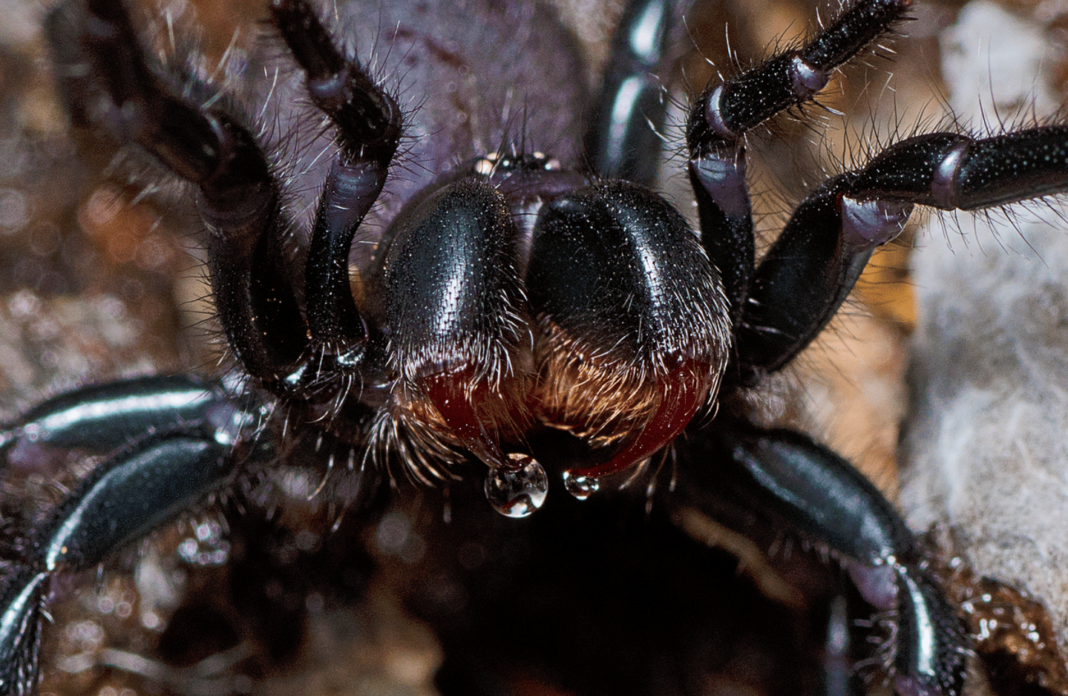An effective drug to stop potentially fatal cell damage in heart attack and ischemic stroke is one step closer to reality, after the K’gari funnel-web spider venom molecule Hi1a met critical benchmarks on its road to human trials. In preclinical tests on a rodent model designed to mimic real-world treatment scenarios, Hi1a was able to protect cells from damage when administered throughout the stages of a heart attack. This builds on an enduring body of work from Associate Professor Nathan Palpant and Professor Glenn King, from the University of Queensland’s Institute for Molecular Bioscience.
Previously, how Hi1a blocks acid-sensing ion channels in the heart, which in turn prevents the messaging that triggers cell death. And prior to this discovery, they found that , significantly reducing brain damage as the result of stroke. The latest study revealed Hi1a performed “as well as the benchmark cardioprotective drug, cariporide, in all parameters of organ structure and function.
” While studies into cariporide have been ongoing for decades, there are still no drugs in clinical use that prevent cell damage caused by a heart attack. “We established that Hi1a is as effective at protecting the heart as the only cardioprotective drug to reach Phase 3 clinical trials, a drug that was ultimately shelved due to side effects,” Palpant said. “These tests are a major step towards helping us understand how Hi1a would work as a therapeutic – at what stage of a heart attack it could be used and what the doses should be.
” The researchers identified Hi1a’s cell-shielding mechanism discovered in 2021, but they’ve been working on spider venom for more than a decade. This particular molecule comes from one of Australia’s most dangerous groups of eight-legged natives, the funnel-web spider. Hi1a is sourced from the venom of the , one of at least 40 species of funnel-webs.
While this species is found across the states of Queensland and New South Wales, it has a unique population on K’gari (formerly Fraser) Island, having been isolated there off the coast of the mainland for around 20,000 years. As such, it has a different venom makeup to others, and is said to be six times more potent than its most famous cousin, the Sydney funnel-web, which prior to antivenom use was responsible for at least 13 known human deaths. Known to K’gari Island First Nations Butchulla people as , or “long-toothed spider,” its complex venom contains some 3,000 peptide molecules.
A handful are lethal; the rest – like Hi1a – have researchers very interested in teasing out their medical potential. Contrary to reputation, the spiders are known to keep to themselves and sightings are rare. This island funnel-web, however, often trades dense forest cover for a sandy home, which makes it much easier for researchers to track down.
King, who won the 2023 Prime Minister’s Prize for Innovation for developing the world’s first spider-venom-based insecticides, is buoyed by the outcomes of safety studies, taking the drug candidate one step closer to clinical trial. “Our testing and safety studies from independent contract research organizations has provided evidence that Hi1a could be an effective and safe therapeutic,” said King. “Hi1a could reduce damage to the heart and brain during heart attacks and strokes by preventing cell death caused by lack of oxygen.
” And while no drug of its kind has passed safety trials to date, the researchers are confident that Hi1a could be the first. “Importantly, we found that Hi1a only interacts with cells in the injured zone of the heart during an attack and doesn’t bind to healthy regions of the heart – reducing the chance of side effects,” Palpant said. The research team is now spearheading Infensa Bioscience, which has raised AU$23 million (US$15.
2 million) to develop the Hi1a drug candidate commercially. “Most deaths from cardiovascular disease are caused by heart attacks and strokes, yet there are no drugs on the market that prevent the damage they cause,” said Mark Smythe, associate professor and Infensa Bioscience CEO. “An effective drug to treat heart attacks would have worldwide impact, providing a breakthrough to improve the lives of millions of individuals living with heart disease.
” The study was published in , and the researchers discuss Hi1a in this video below. Source:.
From: newatlas
URL: https://newatlas.com/medical/deadly-spiders-heart-drug-human-treatment/



